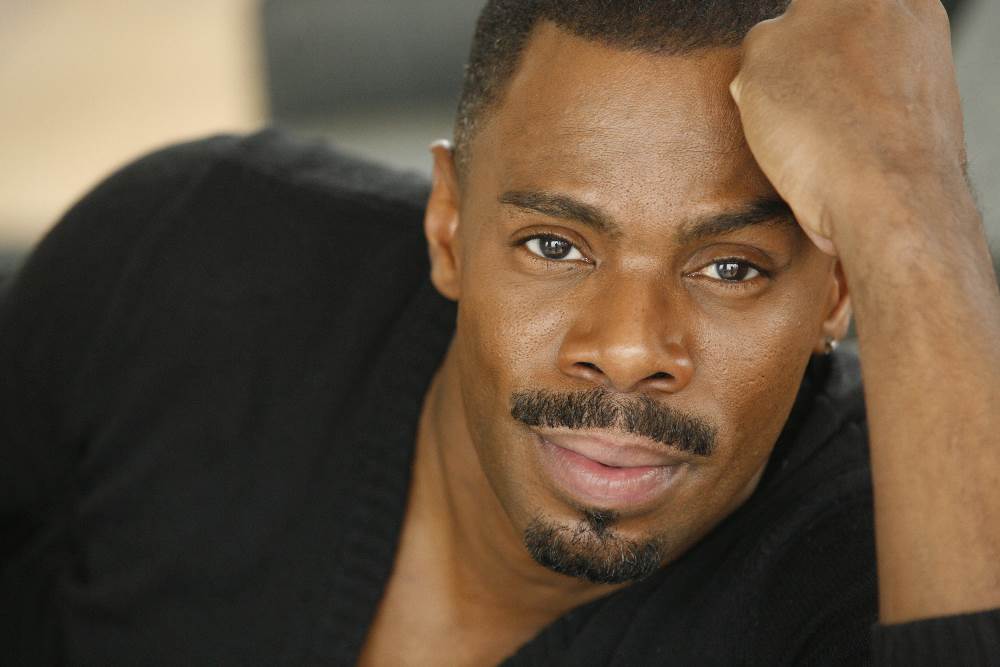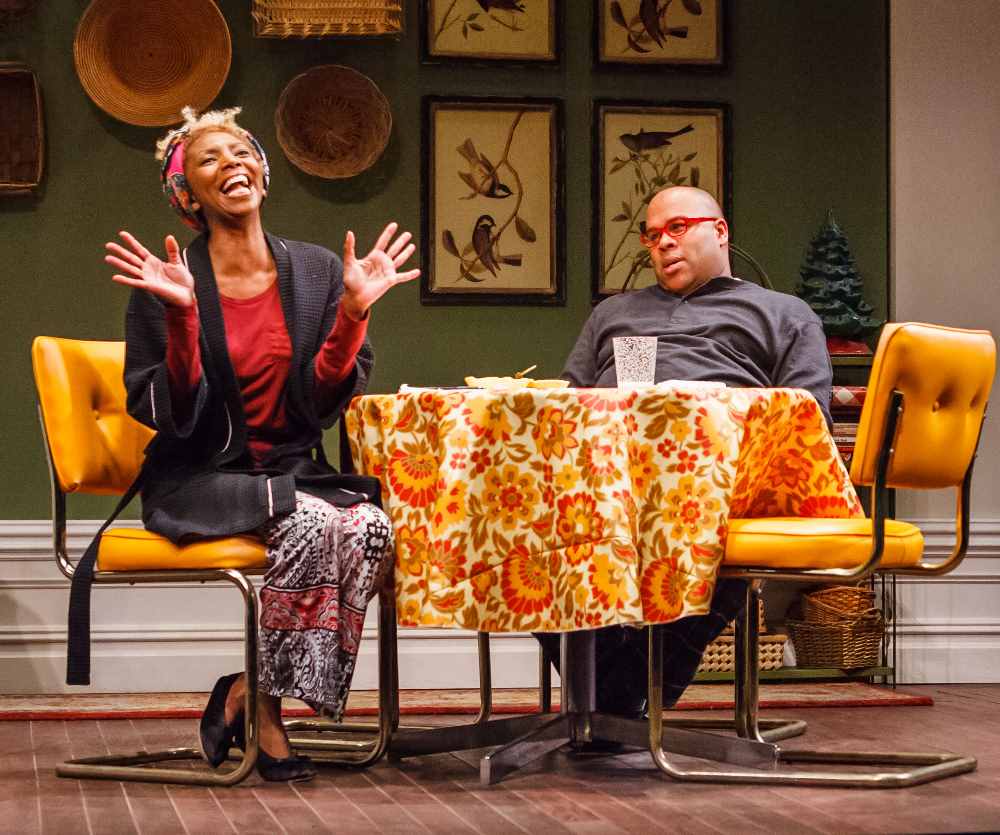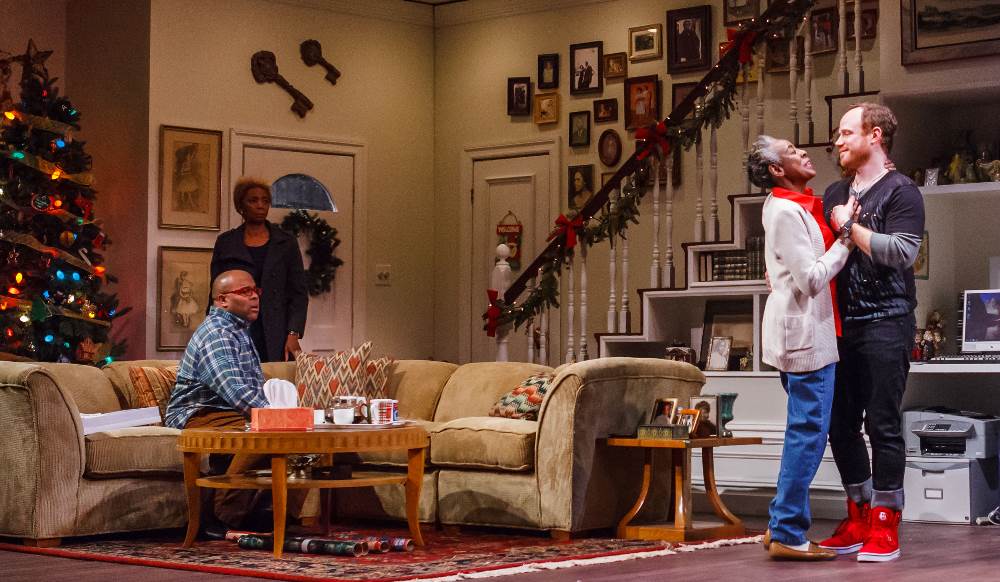The 39th annual Humana Festival of New American Plays, hosted by Actors Theatre of Louisville, runs through April 12, with five fully produced world-premiere plays and a series of 10-minute plays. For those who have never attended, it’s a bit like the Sundance Film Festival for theatre, only with better bourbon.
As part of our special Humana coverage this year, we’re interviewing the playwrights while their plays are running there. Previously, we talked to Erin Courtney and Jen Silverman.
Today’s interview: Colman Domingo.
LOUISVILLE, KY.: When Colman Domingo finished his newest play, Dot, he sent it off to a number of theatre friends in the hopes of getting it developed. Just 36 hours later, he got an e-mail from Actors Theatre of Louisville saying that artistic director Les Waters wanted to produce it in this year’s Humana Festival. “They said it was possibly the quickest decision that was ever made in the American theatre,” says Domingo, recalling how his head spun at the news.
Dot mines similar territory to that Domingo explored in his play Wild With Happy, which had its world premiere at the Public Theater in 2012. Both plays focus on the relationship between a parent and child as death hovers in the background, with a dose of comedy for balance. Unlike in Wild, though, the mother is still very much alive in Dot, though she has dementia, and the question of what to do next looms over her children’s lives as they gather at home in Philadelphia for Christmas.
This is only Domingo’s third play—he’s known for his acting career, which includes performances in The Scottsboro Boys on Broadway and the film Selma, and his first play was a self-performed solo show, A Boy and His Soul. But Dot marks a turning point in his playwriting career. In the conversation below, Domingo explains why, and posits the reason theatres should do less Shakespeare.

Dot isn’t so much about dementia as it is about how these characters figure out the next stages of their lives. I loved the monologue by Donnie, the son, about how at 40, he wants to wear age-appropriate clothes, but he still feels the pressure to remain in his youth and wear the clothes he wore in his 20s.
Yeah! It’s an examination. These are the questions that I have as a 45-year-old man. I think it is a play for people trying to figure out where they are and what is the next step. I think this marker that I have looming, like death: 40 years old, if you really think about it, it’s like, “Wow, 25 years from now, I’ll be 65!” So you have to examine where you’ve been, where you are now and where you are going.
Are you where you want to be as a playwright?
I’m at a great place. I think this is a seminal moment in my career as a playwright. The idea of doing a show at the Humana Festival makes you feel like, “Oh, I’m actually a playwright!” Even though I’ve had plays produced at the Public Theater and the Vineyard, I feel like something about this really solidifies me because of the history and the legacy of it.
And this is something that’s very important for me: I do think that, in order for us to have the next Shakespeares, we have to stop doing Shakespeare so much! That’s why it’s just exciting for me to be a part of something that’s about new work, because how are we ever going to find the new Shakespeare if everybody’s always concerned about doing Shakespeare? Theatres should do a moratorium on Shakespeare—you can print this—for one solid year.
Your play also deals with caring for aging Baby Boomers, which isn’t a common topic.
Right, people in their 20s and 30s aren’t thinking about this stuff, because we’re not supposed to think about this stuff. But at some point, we’re going to have to deal with it. I have friends dealing with their parents with Alzheimer’s, and the way they were handling it—because there was so much pain underneath—it was darkly comedic. One friend of mine was just exhausted because she’s still dealing with her mother who’s in this state of horrible decline, and she spoke to me on the phone and said, “Oh my God. When this woman dies, I’m going to Paris.” And she said it so flippantly and she’s laughing—she’s exhausted from managing this for years now.
It’s important to have the lens of dark comedy on it. The moment you say dementia, people are like, “Oh!” They don’t want to deal with it; it’s too painful. And I know. I’ve done all this research, and I’m in a puddle crying. And this is from someone on the outside; I can’t even imagine the weight of what my friends have been going through. It breaks my heart, but if I can give them and the viewer some sort of relief in some way and help them find themselves in the play, then I think it’s a great ride we can be on. It can open us all up to what others are going through, but not wear us out.

Human beings need comedy to deal with tragedy or it becomes too much to bear.
Or you’ll die! I lost both of my parents in 2006, within one year. My mother had lupus and my father had a heart condition. I remember I was in an interview at a radio station within a year and they said, “Oh my gosh, your mother must be so proud of you!” And I said, “Well, she’s dead.” And I laughed because I thought it was funny. And this was live on air.
I realized I had to laugh at the absurdity of certain things or else it would kill me. We’re all so afraid of dealing with death, but I’m not afraid of laughing at it a little bit as well. In a strange way, death is absurd. Illness is absurd because we’re not used to it. Racism is absurd. It’s all absurd! When you can’t really understand it, it’s absurd.
Death is just standing there with a big wide smile: “You can avoid me as much as you can, but you know you’ve got to come over here at some point.” It’s so funny in some ways. Only people who’ve experienced it firsthand—losing a parent, losing a loved one, being there for a family member with a prolonged illness and seeing it—can understand it and examine it. It’s something that will happen—it’s human. So while we’re here, let’s figure out how to make the best of it.
So to deal with that, where can people go for good bourbon in Louisville?
So far I’ve just been to Trader Joe’s and bought my own bourbon! Or MilkWood is an amazing place to get a bourbon cocktail. I would say go to MilkWood if you want a cocktail.


